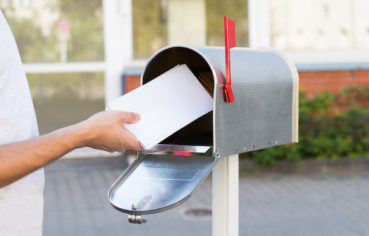How to Start a Wholesaling Real Estate Business

If you are up for the arduous task of how to start a wholesaling real estate business, I applaud you. Starting your own business takes a lot of courage and effort. Whether you are just looking to start, you’ll need to know what real estate wholesaling entails.
Real estate wholesaling involves buying off-market properties, or homes that are not listed on the MLS, at a discounted price with the intention of selling or assigning the property to another investor. This type of business will be challenging and it will test your ability to problem solve while maintaining positive relationships with home sellers and real estate investors.
Create your business entity
First things first, you’ll want to create your business entity. A business entity is when you start a corporation separate from yourself for legal and tax purposes. This is important because this will shield your personal assets from your business liabilities. When creating a business entity, I recommend creating an LLC.
Before you go to legalzoom.com or talk to your attorney, you should compare the pros and cons of forming an LLC.

Benefits of an LLC
- Brings credibility to your business because you have a legal business name.
- Adds a layer of anonymity to the properties you are investing in.
- Your personal assets are usually protected from business liabilities.
- The pass-through taxation to your personal taxes is more simple than with other types of corporations.
Drawbacks of an LLC
- There is a cost to form the LLC, and in some states there is an annual fee to keep the LLC active.
- While the LLC shields your risks from business liabilities substantially, it isn’t total protection.
- If you need to get financing for a property, it can be more difficult with an LLC.
There are several considerations when creating an LLC
- Setting up corporate bank accounts and credit cards
- Keeping meeting minutes, if this is required by your LLC’s operating agreement
- Submitting an annual report, if your state requires it
Create your company’s website
If you are going to be successful in any type of business, you’ll need to create a website. A website helps build credibility with motivated sellers, collects lead information, and is a great overall sales tool.
Strategies for your website
- Get an easy to remember url. You don’t want a website that confuses people or a url that can be prone to misspellings.
- Create a logo that is eye-catching and aligned with your business’ branding.
- Add testimonials to your site. The best testimonials will be videos. Once you’ve done a few deals, make sure to record your sellers and/or investors and publish the positive feedback on your site.
- Add relevant content to your website, so people know what you do and what solutions you can provide for them.
- Create a contact form for leads and consider adding an ability for people to schedule an appointment with you on your calendar
What are your state’s legal requirements for wholesaling real estate?
If you haven’t already done so, you will definitely want to check your state’s legal requirements for wholesaling real estate. There are some states that will require you to obtain a brokerage license prior to wholesaling real estate. Not all states require this, so it’ll be important to do your due diligence in order to see if you have another item to check off before establishing your wholesaling real estate business.
In addition, you will need to understand what limitations you might have with marketing. Some states will not allow you to advertise a home you do not own, since you’ll have the contract for the home but not actually own it. Furthermore, some states will not allow you to advertise a property without proper licensing. Again, I recommend talking with an attorney before forming your wholesaling real estate business. You don’t want to get hit with a fine and shut your business down for illegal activity.
Starting the wholesaling real estate process
Now that all the preliminary work for setting up the business is done, it’s time to learn how the wholesaling real estate process works. The first thing you should do is to start finding off-market properties.
1. Finding off-market properties
Deals aren’t just going to come to you. In order for you to start your business, you’re going to have to start generating your own leads.
You won’t find deals on redfin or zillow, so you’ll need to do some work to find these off-market properties. Because these off-market properties will most likely be discounted.
Strategies for finding off-market properties
- Drive around and find homes that don’t look occupied or are in bad condition. Write down the address and you can conduct a search doing skip tracing, which will get you information on the homeowner and their contact information. Be sure to ignore bank owned properties or homes that were recently purchased.
- Use bandit signs and place them in high trafficked intersections.
- Use craigslist and other sites for homes that are being sold by the owner or FSBO.
- Buy a list from a list provider.
2. Analyzing the deal
It’s important to understand how to analyze a deal. If you aren’t able to do this, you’ll be entering deals that might not be profitable. This isn’t sustainable, so you’ll need to be able to determine what deals are profitable and how much you should expect in profits.
Here are some factors to consider when analyzing the deal:
- How much the homeowner wants for the property
- How much it will cost to repair the property
- Taxes, utilities, and fees for purchasing the property
- The fair market value (FMV) and the after repair value (ARV) of the property
Use the following information to determine whether the deal is profitable.
A good tip is to make sure you always have at least 20 leads in your pipeline. The more the better, but you will want to have consistent leads in various stages of acquisition so you aren’t going months without income.
3. Drafting your offer contracts
The next important step for wholesaling is preparing your offer contracts. You’ll want to hire a real estate attorney to help you. These contracts will be used to acquire and transfer the property.
It’ll be important for the contract to have the following:
- A statement verifying your ability to market the property
- A clause verifying your ability to assign ownership of the property before the closing date
- A statement verifying your ability to show the property to prospective buyers, if you plan to show the property
- A section verifying your ability to exit the contract if necessary
Once you and your real estate attorney are happy with the contract, you can present your offer contract to motivated sellers.
4. Finding a buyer
Now that you’ve acquired a property, it’s time to find a buyer. At this point, you should have a list of 10 or more investors that you can offer this contract. This is oftentimes the easiest step. However, if your property is in disarray, you may want to have a few contractors put in some bids on repairs. This way, you can have a solution for the investor if they’re hesitant on the current condition of the property.
A bit of advice, you’re not going to want to sell it to any investor. Ideally, you want an investor who has cash to purchase the property. You do not want to go into financing as you will have a short window of time to assign the contract to a buyer.
5. Assigning the contract to the buyer
Similar to the offer contract you give to the homeowner, the assignment contract is the paperwork that will transfer the property to your buyer. Once the contract is signed, it will go to your chosen title company and the cash for the property will go into escrow.
6. Entering escrow
Now that you’re in escrow, the deal is almost done. Escrow is a legal agreement that involves the buyer temporarily holding large sums of money until the purchase agreement is fulfilled. Escrow companies are neutral third parties selected by the Title Company to protect both the parties’ financial interests.
7. Finalizing the Deal
Typically, the title company will take care of this step. Once the offer contract has been executed and completed, both the homeowner and investor will sign all closing documents and you’ll be paid.
You’ve done it! Now just keep repeating these steps and you’ll be on your way to financial freedom.


